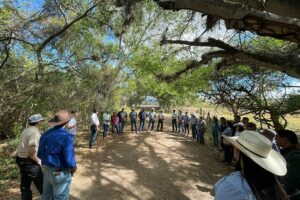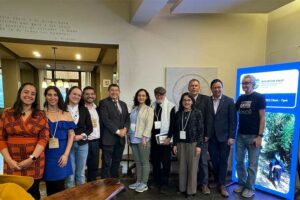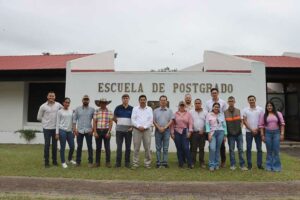ESCALAR Project Strengthens Socio-Business and Financial Management Skills in the Dry Corridor of El Salvador, Guatemala, and Honduras
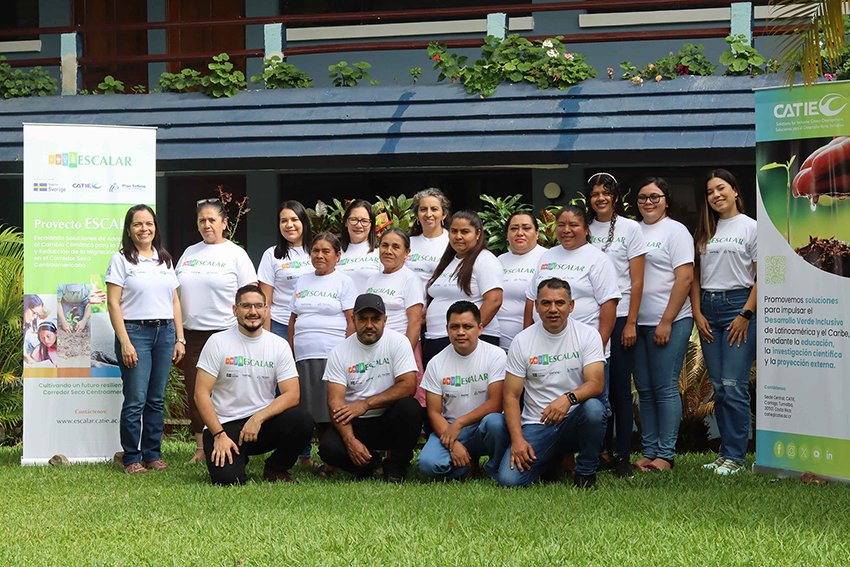
- From July 10 to 12 in Esquipulas, Guatemala, four rural associative enterprises received training in socio-business and financial management from sustainable agribusiness specialists at CATIE.
The ESCALAR Project: Scaling Climate Change Adaptation Solutions for Resilience and Reducing Migration in the Central American Dry Corridor, conducted an intensive leveling course in socio-business and financial management for the executive, managerial, and administrative staff of the Agricultural Production Cooperative Association "Mirador El Escondido" of Limited Liability (ACOPAME) from El Salvador; the Women in Coffee Alliance (AMUCAFE) and the Santa Teresa Ocotepeque Biological Reserves Coffee Cooperative (COCREBISTOL) from Honduras; and the Progressive Women’s Association of Caserío Plan de Jocote Maraxcó (AMUPROCAJ) from Guatemala.
ESCALAR's team of sustainable agribusiness specialists, along with members of ACOPAME from El Salvador, AMUPROCAJ from Guatemala, AMUCAFE, and COCREBISTOL from Honduras, gathered from July 10 to 12 in Esquipulas, Guatemala, for the training session. The training was led by two specialists from CATIE's Environmental Economics and Sustainable Agribusiness Unit, Susana Acuña and Anthony Gamboa, who work in coordination with ESCALAR to strengthen rural associative enterprises collaborating with the project in El Salvador, Guatemala, and Honduras.
The objective of the activity was to conduct a leveling process in three key areas: organizational management, business management, and financial management, training organizations that joined the ESCALAR project in 2024. This training replicated the most important topics covered with the first partner organizations in 2023.
"It is very valuable to share with the organizations. The idea is that these Rural Associative Schools (ERAS) provide the knowledge and tools so that they can work in harmony with all the organizations that are part of ESCALAR," Gamboa mentioned.
Acuña, on the other hand, mentioned that it was an essential leveling workshop to establish a common understanding among all ERAS of the ESCALAR project, strengthen collaboration among the involved parties, and ensure long-term success by effectively and efficiently integrating new partner organizations.
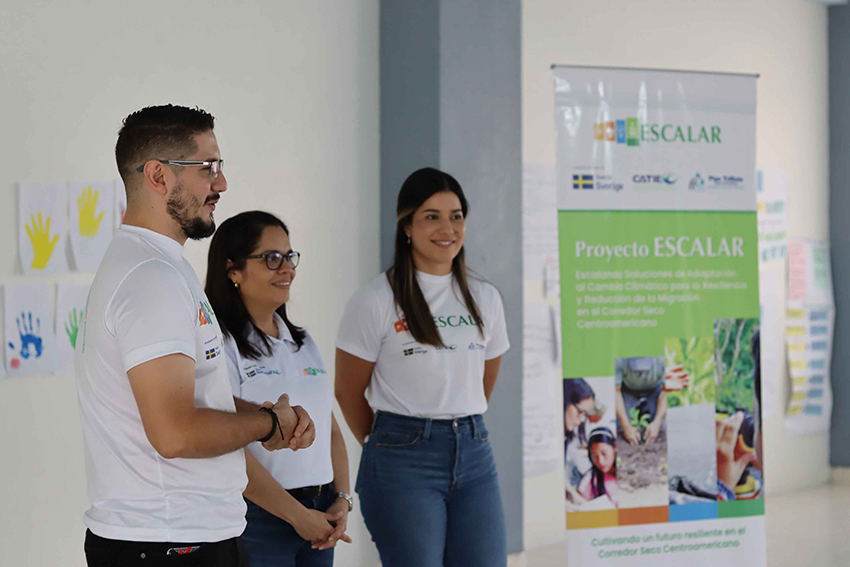
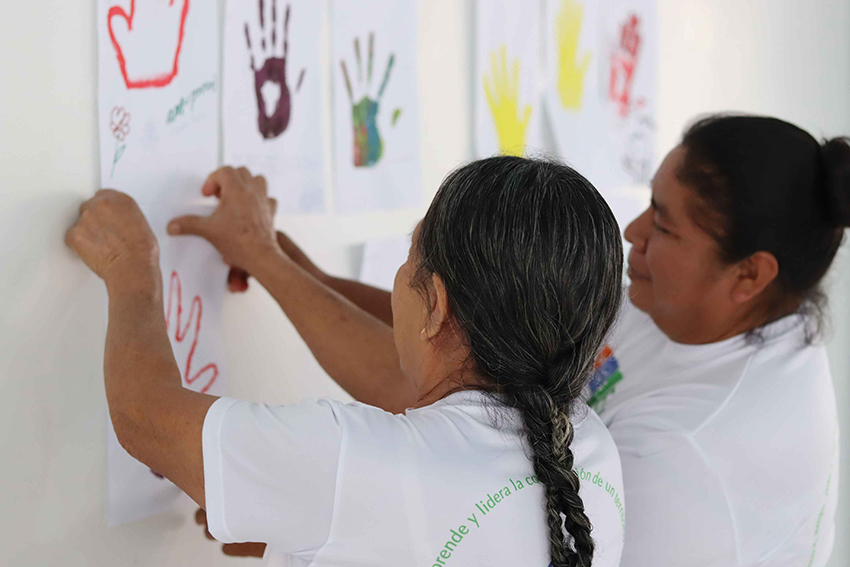
The ESCALAR agribusiness team, CATIE, and AMUPROCAJ, Guatemala, leveling workshop, Esquipulas, Guatemala.
The training process was unique in being intergenerational and involving 90% women participants. One element that all participants highlighted was the valuable experience exchange among the three countries. Katia Valdez, the youngest participant in the workshop and a member of AMUCAFE, where 365 members actively participate in Ocotepeque, Honduras, commented that the leveling content was of utmost importance to them. "Everything I learned I will put into practice. I enjoyed learning and sharing experiences, and we need to take advantage of these opportunities given to us," she noted.
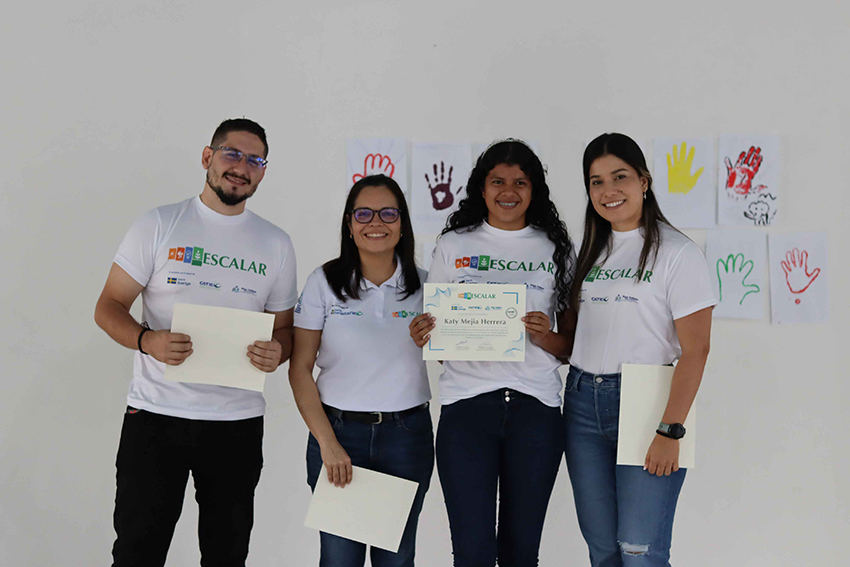
Katia Valdéz, AMUCAFE, Honduras, and ESCALAR – CATIE Sustainable Agribusiness team, leveling workshop, Esquipulas, Guatemala.
Marisol Velázquez, administrator of COCREBISTOL, mentioned that it was a very interesting workshop, especially because decision-makers were present, which is crucial for all members of the enterprises to take ownership of the organizational processes. "This project is doing different things because it focuses on the leaders of the organizations, which gives it sustainability. I want to say that we have always believed that the best investment in organizations is to provide knowledge," Velázquez concluded.
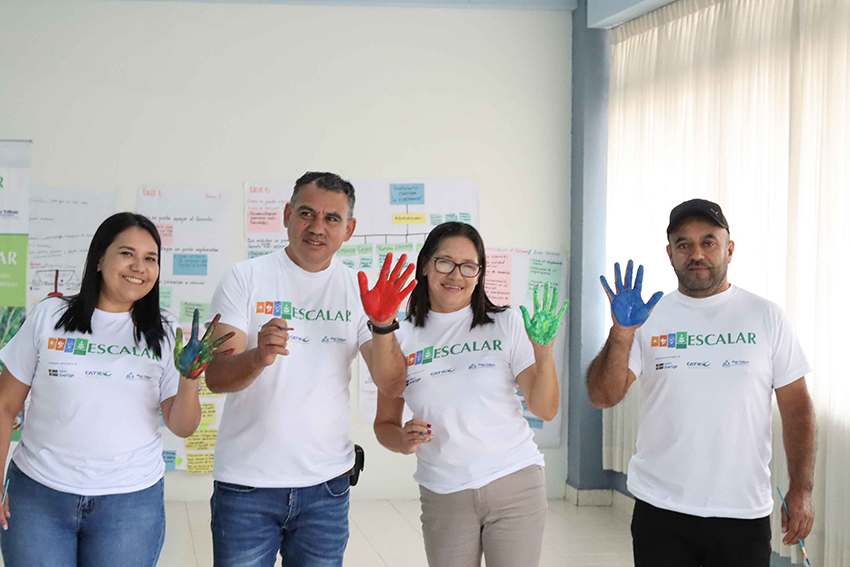
Members of COCREBISTOL, Honduras, leveling workshop, Esquipulas, Guatemala.
The AMUPROCAJ team, represented by its management and board, emphasized that the workshop had excellent facilitation and content. In administrative matters, they assured that they would multiply what they learned within their association, thanking CATIE and ESCALAR for the support that contributes to the empowerment of communities.
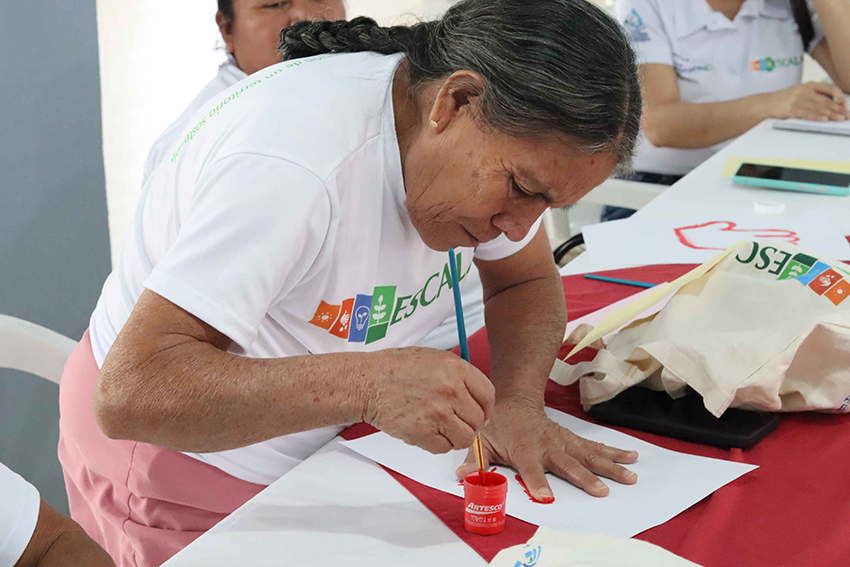
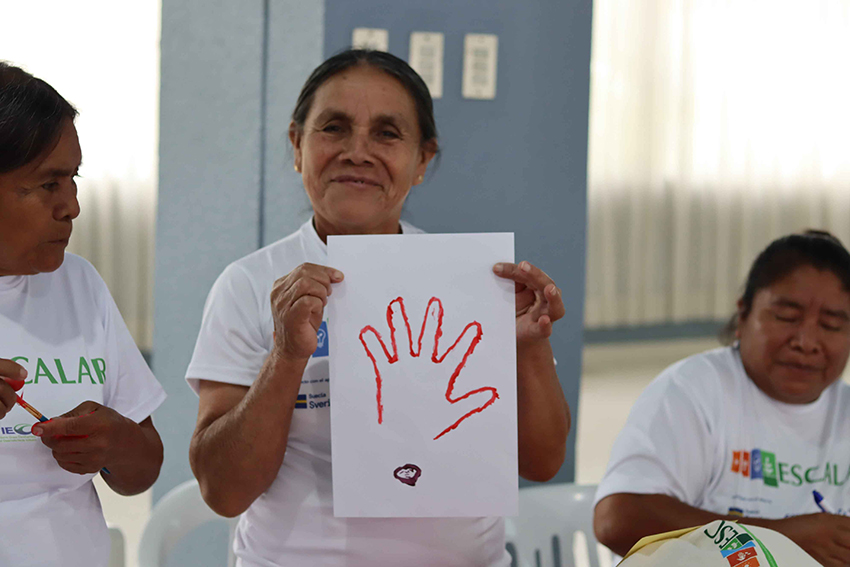
AMUPROCAJ, Guatemala, leveling workshop, Esquipulas, Guatemala.
"The most valuable thing about this workshop was realizing the resilience of people and organizations in terms of teamwork, the importance of the management carried out by cooperatives and associations at the Trifinio level. In this workshop, we had the participation of the three countries, and we hope for an integration of all organizations to exchange experiences that teach those who are starting and strengthen the work network," Gamboa emphasized.
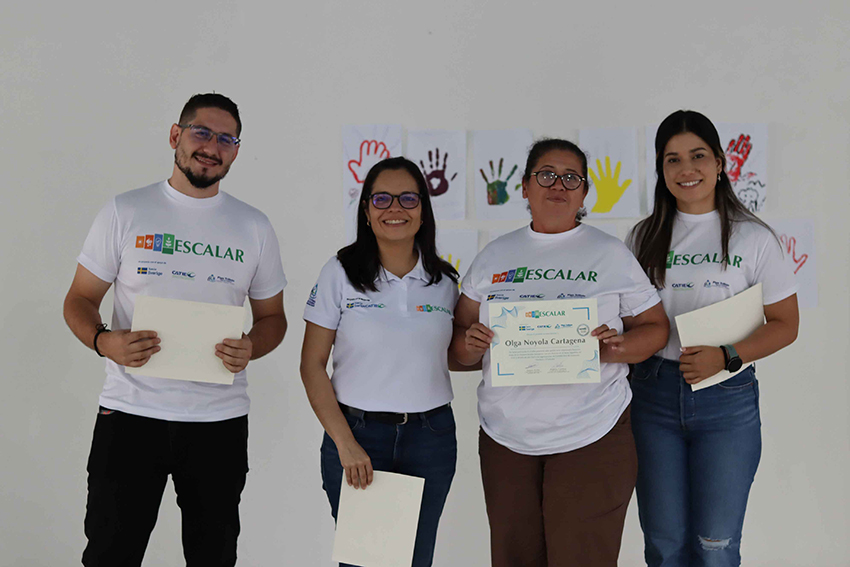
Member of ACOPAME and ESCALAR – CATIE Sustainable Agribusiness team, leveling workshop, Esquipulas, Guatemala.
The members of ACOPAME assured that this process strengthened their capacities and filled them with satisfaction to be able to replicate this learning in their territory.
"The exchange of experiences lived during these three days was very valuable. We met different organizations at all levels, and we also conducted extremely valuable practical exercises that they will be able to continue using in their organizations. The idea is that this knowledge is replicated so that more people become agents of change," Acuña concluded.
More information:
Anthony Gamboa Chavarría
Specialist in Sustainable Agribusiness
Environmental Economics and Sustainable Agribusiness Unit
CATIE
anthony.gamboa@catie.ac.cr
Laura Rodríguez
Specialist in Sustainable Agribusiness and Incubation
Environmental Economics and Sustainable Agribusiness Unit
ESCALAR Project
CATIE
laura.rodriguez@catie.ac.cr
Written by:
Donaji Garcia
Development Communication Specialist
ESCALAR Project
CATIE
donaji.garcia@catie.ac.cr

